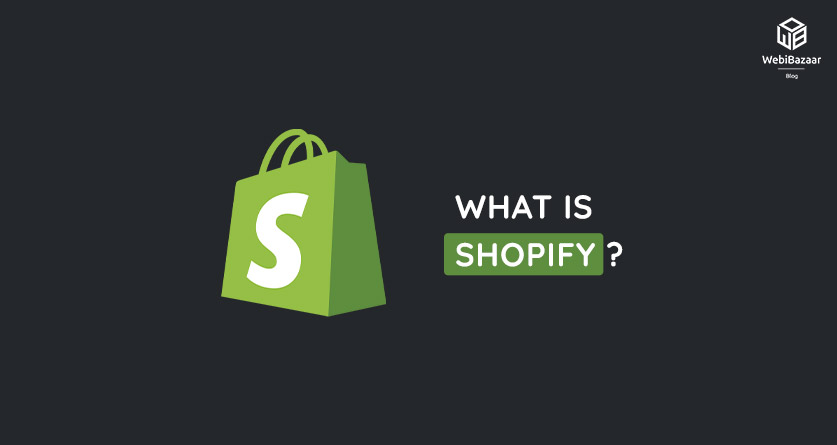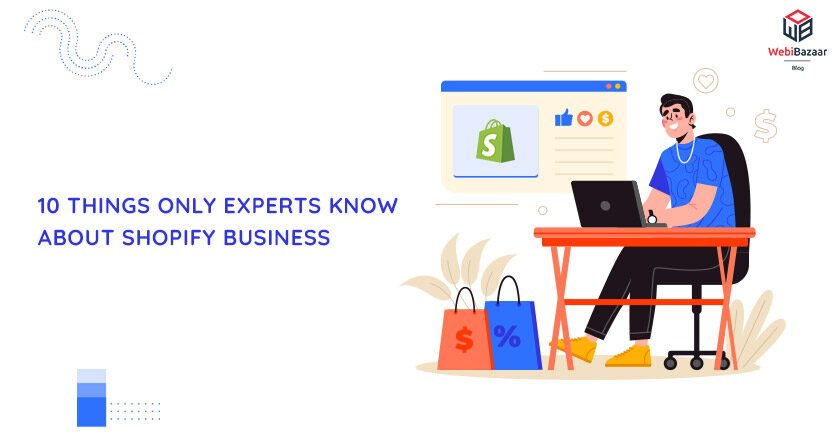Today, Millions of aspiring entrepreneurs and business people are in a tussle to grow their Shopify business. Many succeed in doing so, but everyone is not that fortunate.
If you are also struggling to grow your Shopify enterprise, these ten Shopify business tips from the Shopify business experts will guide you to the right track.
But before we begin with the tips, let us know certain aspects like what Shopify is, how to start a business on Shopify, and other necessary details; you must understand Shopify to excel.
Let’s Get Started!
Things Only Experts Know about Shopify Business

What is Shopify?
Shopify is one of the best eCommerce platforms that allows anyone to set up an online store. Merchants can quickly build and customise their online stores and sell products. It offers an excellent alternative to brick-and-mortar mortar stores to reach customers globally.
Shopify is growing fast. It alone has 600,000 online stores. Even if you have no experience running an online store, Shopify’s features let you quickly set up your store.
How do I start a business on Shopify?
You can start a Shopify business by carefully researching/knowing what and what you want to sell and the niche of products you would like to deal with. Once that is decided, use your email to register.
And you are all set to rock the eCommerce universe.
You will get 14 days of a free trial. fill up all the necessities like location, no of products, selecting a plan, and billing details.
Once settled, design your homepage and upload photos.
In recent years Shopify has become a crowded marketplace. There is so much competition on the Shopify store platform, making creating a unique identity in an already established market challenging.
You must make a compelling offer and optimise your online store to stand out and connect with customers.
Here are ten things only experts know about Shopify business that helps you make a standout
Also Read: 15 Features Of Shopify Themes That Make Everyone Love It
1. Mobile-Friendly Designs for Your Online Store
Half of all internet usage comes from mobile devices. Online stores operate 24*7. People spend most of their time on mobiles, so having mobile e-commerce is essential. Your Shopify store should be mobile-friendly.
It is a simple step but can make a lot of difference. One should not lose a customer because of this reason.
2. Use Shopify themes
Your online store should be attractive and easy to navigate. With over 100+ Shopify themes, you can customise your store. It offers diverse shop templates, of which a number of them are free.
These templates are easy to use and compatible with a lot of products out there.
3. Social Media Integration
Facebook and Instagram should be integrated to reach the target audience and boost sales and marketing. Paid ads on Google can be worth the investment.
Show targeted ads to customers who have already visited your website . by integrating Instagram, you can turn your posts into detailed advertisements. On Instagram, a feature to display the price is also available.
4. Search Engine Optimisation
Shopify online stores have built-in SEO features to optimise your content. You must do SEO properly so that your name appears on the first page whenever someone tries to find a product online.
Do a detailed study on keywords relevant to your product and then add those keywords to your Shopify store.
Interactive and Engaging content
Images and videos get a higher engagement rate. Shopify has a built-in toolbox that helps you create stunning visuals. You can add product videos that will appeal to your customers.
By adding simple quizzes, you can make your content interactive. Examinations are highly effective in driving organic customers.
Also Read: Do You Need A Business License To Sell On Shopify?
5. Abandoned Cart notifications
Shopify ensures easy checkout and various payment options to reduce abandoned carts. But sometimes, customers get distracted and forget about purchases.
Shopify comes with a built-in tool known as recast, which helps reduce cart abandonment. You can send the email manually or automatically to customers.
You can also send personalised emails and push notifications.
6. Selling more Products
Your Shopify store should be complete from within. Try to include a variety of products. At first, you should try and sell the unique products that make you stand out, but after success, you should add a mixture so that customers can get everything from your store.
By selling more products, you are giving options and also increasing engagement.
7. Display customer reviews
Customer reviews are essential in affecting buyers as they are social proof.
Positive customer reviews are vital marketing tools. You can also ask customers to review your products and give extra credit points to them.
Another way to add reviews is by influencer marketing. Social media influencers are paid to review your product. This helps to boost your sales and trust in your company.
8. E-mail Marketing
Build a strong email list. Email marketing allows you to message the customer whenever you want. A solid email list is crucial as you won’t depend on paid traffic.
You can provide valuable updates and offers. By email marketing, you don’t lose your customer and can always stay in touch with them.
9. Import data using CSV files
By using CSV files, you can manage large volumes of data effectively. You can edit CSV files in excel or google docs. Edit the details of your products and their price directly using CSV files. It makes the work easier and hassle-free.
Also Read: How To Create An Invoice On Shopify For Customer?
Is Shopify a profitable business?
Shopify is profitable but also depends on other factors and your business model. The company targets both brick-and-mortar retail businesses and small online-only capitalists.
One of the most significant advantages of Shopify is its integration with various selling channels. This platform is used widely by college students and eCommerce beginners as it is easy to set up.
Now that you share the same knowledge as a Shopify Expert, you are all set to rock the eCommerce universe with your brand. If you want to know more about Shopify and other eCommerce Platforms, you can check out our other blogs:
More website themes & templates are provided by webibazaar like WordPress templates WooCommerce templates and PrestaShop templates layout design you can purchase and downloads, check out Webibazaar.
More Blog:
